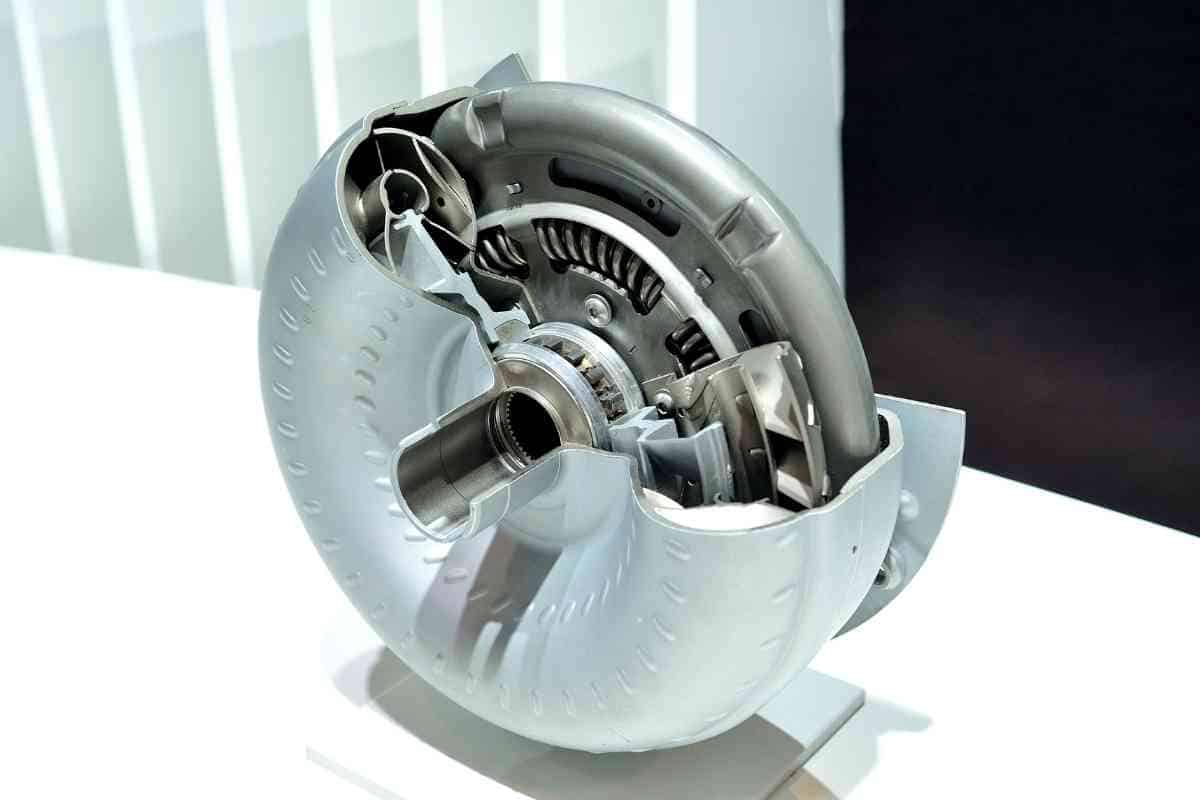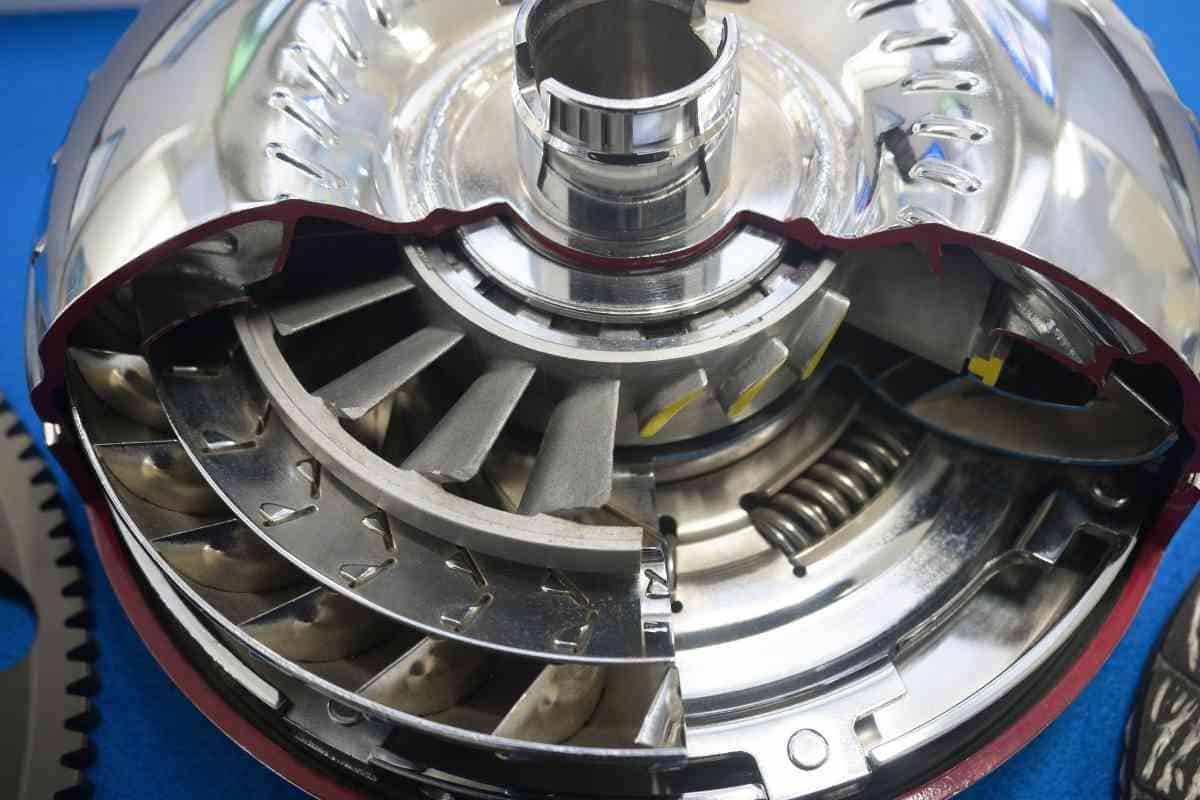5 Reasons Why A Torque Converter May Fail
A torque converter is extremely important for cars with an automatic transmission, but understanding what causes one to fail is critical information.

What causes a torque converter to fail?
Bad or faulty bearings, insufficient transmission fluid, damaged seals, excessive converter overloading, and a damaged clutch solenoid are all common causes of why a torque converter might fail. Look for shuddering, slipping, overheating, or loud transmission noises to spot the failure.
A torque converter is an automatic transmission component that will convert the rotational speed of an engine into a usable rotation speed for the vehicle. Manual transmissions use a clutch, and automatic transmissions use a torque converter.
Without one, stopping the vehicle would be nearly impossible because it acts as a fluid coupling so the engine can spin independently. For example, when a car is stopped, the brake must be pressed, or the vehicle will roll forward because the engine still turns.
This is partially because a tiny amount of torque still passes through the converter. Because it’s continuously used and relied on, things can go wrong and fail too.
Potential reasons a torque converter might fail include bad bearings, insufficient transmission fluid, damaged seals, excessive overloading, or a damaged clutch solenoid.
Bad Or Faulty Bearings
The most common cause of a failing torque converter is extreme or excessive friction due to bad or faulty needle bearings. This is obvious when there is a grinding sound while driving.
This sound indicates two parts are rubbing against one another, which happens because of bad or damaged bearings. The purpose of bearings is to reduce friction, so when they go, friction builds up, and the converter fails.

Insufficient Transmission Fluid
It may surprise most people, but the transmission fluid is responsible for providing power to the torque converter when it passes through.
When there are not enough fluids, the converter works harder and fails. The same is true when the wrong fluid is used, or the transmission fluid gets contaminated.
Damaged Seals
The torque converter seal keeps transmission fluid flowing instead of leaking. It also keeps dirt, dust, and other debris out of the internal areas of the transmission.
When these seals go bad or get damaged, there is no way to protect these components and fluid leaks. This impacts the transfer of power and leads to torque converter damage and, eventually, failure.
Excessive Overloading
Another apparent reason why a torque converter fails is excessive overloading. When this happens, overheating is expected, among other vehicle issues.
This happens when the limiting clutch gets overloaded. It causes excessive slipping between the friction discs because the converter can no longer control the frictional force.
Damaged Clutch Solenoid
When the clutch solenoid is damaged, there is no way for the torque converter and transmission to measure the amount of fluid needed accurately.
Without a solenoid, there is no accurate way to regulate the engine’s torque. This leads to excessive fluid pressure resulting in increased fuel consumption, erratic shifting, slipping, and vehicle stalling.
What Happens When A Torque Converter Completely Fails?
Torque converter problems are expected, and the severity of the problem can vary. Because most of the failures that come with a torque converter are so severe, they are usually replaced rather than repaired.
When the torque converter completely fails, drivers can expect to feel shuddering, slipping, and overheating, and they will notice transmission fluid contamination or transmission noises.
Shuddering And Slipping
A failing or malfunctioning torque converter is most commonly spotted because of a shuddering or slipping feeling when starting the car. This feels like vibrating when starting the car and driving.
If this happens, the car should be driven directly to the mechanic to inspect both the transmission and torque converter to determine the issue. It’s most likely a failed torque converter.
Overheating
Another sign of a failing torque converter is consistent overheating. The transmission temperature indicator will show increased temperatures which is a worrying sign.
When this happens, much worse things can happen too. We recommend getting this fixed immediately, or the transmission will also fail.
Transmission Noises
Lastly, the transmission will make noises when accelerating and turning. This is often confused as a bad transmission, but more often than not, it’s the torque converter.
How To Fix A Bad Torque Converter
When driving, the torque converter is what allows the car to start and stop smoothly. If the car has a bad torque converter, it may be time to replace it.
They are difficult and expensive to fix. We recommend checking the transmission, checking the fluid levels, trying to replace the seals, or completely upgrading the torque converter to a new one.
Check Fluid Levels
To fix a bad torque converter, check the fluid levels to ensure transmission fluid is flowing properly and not contaminated. This is one of the easiest ways to diagnose the problem too.
Replace The Seals
Assuming the fluid levels are low, it’s possible the seal is bad and causes a leak. It’s possible to try and patch the leak or replace the seal, but visiting a professional for help is the best solution.
Upgrade The Torque Converter
Because the torque converter is critical, upgrading to a new one is usually the best option. Most auto shops will only replace them with new ones rather than repair them.
How Long Does The Average Torque Converter Last?
The good thing about a torque converter is it typically lasts for 150,000 to 200,000 miles on average before failing.
The first thing to know about a torque converter is that it can be found between the engine and the transmission of an automobile. Its job is to increase the engine power by converting rotational motion into linear motion.
However, the replacement can be costly when it fails because they are extremely difficult to repair and restore. This means a new one needs to be purchased instead.
More often than not, the torque converter will last for the car’s entire lifespan. But things can go wrong, and it can fail.
Can You Still Drive If A Torque Converter Fails?
A torque converter is responsible for transferring power from the engine to the transmission, and it also performs some of the tasks that were once done by a clutch. So when it fails, driving is not the same.
The torque converter uses fluid to transform rotational motion into linear motion. Fluid flows from one part of the torque converter to another, creating pressure inside of it.
The pressure causes a spinning turbine to move gears within the transmission. This causes the car’s wheels to turn and move forward.
We recommend getting the torque converter problem addressed as soon as possible. Driving with a bad one can cause serious transmission failure.
Key Takeaways
- The most common causes of why a torque converter fails are because of bad or faulty bearings, insufficient transmission fluid, damaged seals, excessive converter overloading, and a damaged clutch solenoid.
- When the torque converter fails, it causes shuddering, slipping, overheating, and loud transmission noises when accelerating.
- To fix a bad torque converter, check the fluid levels, and if they are low, the seal is likely bad, and the converter should be replaced.

My transmission is slipping. I had the fluid flushed but after two days slipping again. Waldorf Chevy Cadillac dealership mechs did not drive vehicle to experience slipping. I paid $337.00 for transmission flush. Now possibly l looking at a failing torque converter based on this above article. I live in Md. Any reliable mechacanic(s) to recommend